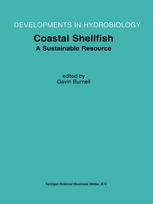

Most ebook files are in PDF format, so you can easily read them using various software such as Foxit Reader or directly on the Google Chrome browser.
Some ebook files are released by publishers in other formats such as .awz, .mobi, .epub, .fb2, etc. You may need to install specific software to read these formats on mobile/PC, such as Calibre.
Please read the tutorial at this link: https://ebookbell.com/faq
We offer FREE conversion to the popular formats you request; however, this may take some time. Therefore, right after payment, please email us, and we will try to provide the service as quickly as possible.
For some exceptional file formats or broken links (if any), please refrain from opening any disputes. Instead, email us first, and we will try to assist within a maximum of 6 hours.
EbookBell Team

4.0
46 reviewsCoastal populations of shellfish have been exploited by humans for millennia as an easily accessible source of fresh protein. Unfortunately, because the intertidal zone and the shallow coastal margins are so intertwined with man's activities, these shellfish stocks are now severely threatened around the world. Issues such as anthropogenic pollution, harmful algal blooms, overfishing, loss of habitat, and local stakeholder conflicts are all contributing to an alarming decline in the natural productivity of these regions.
There have now been five International Conferences on Shellfish Restoration (ICSR) since 1996, which have focused the attention on transferring scientific knowledge into practical remedial and restorative actions for shellfish populations. This volume represents a selection of contributions from the third meeting in Cork, Ireland, 1999. It includes papers on lobsters, sea urchins, whelks, clams, mussels, and scallops, with a thematic emphasis on ranching, disease, environmental interactions, fisheries management, aquaculture, restoration, toxic algal blooms, and toxicity testing.